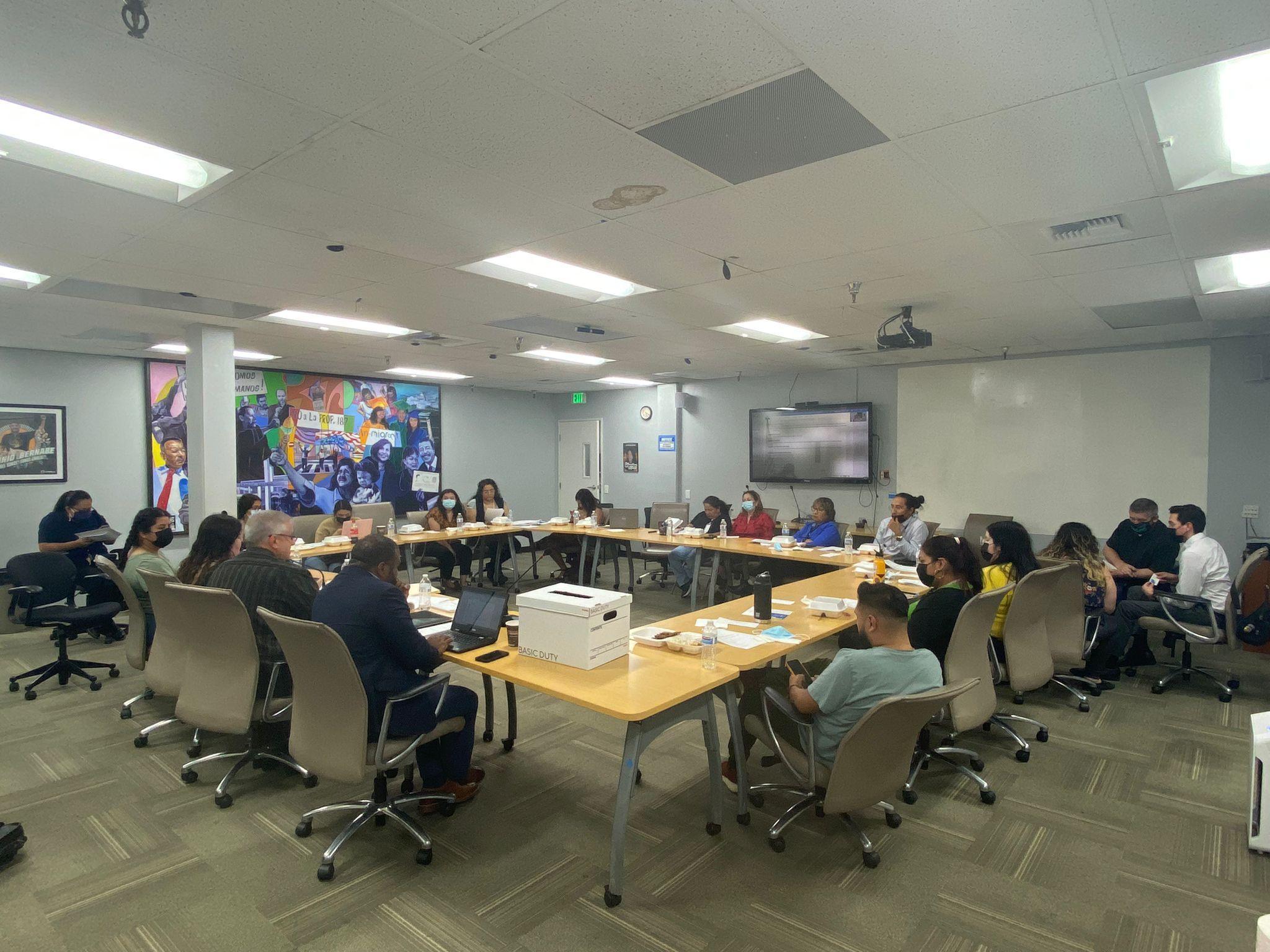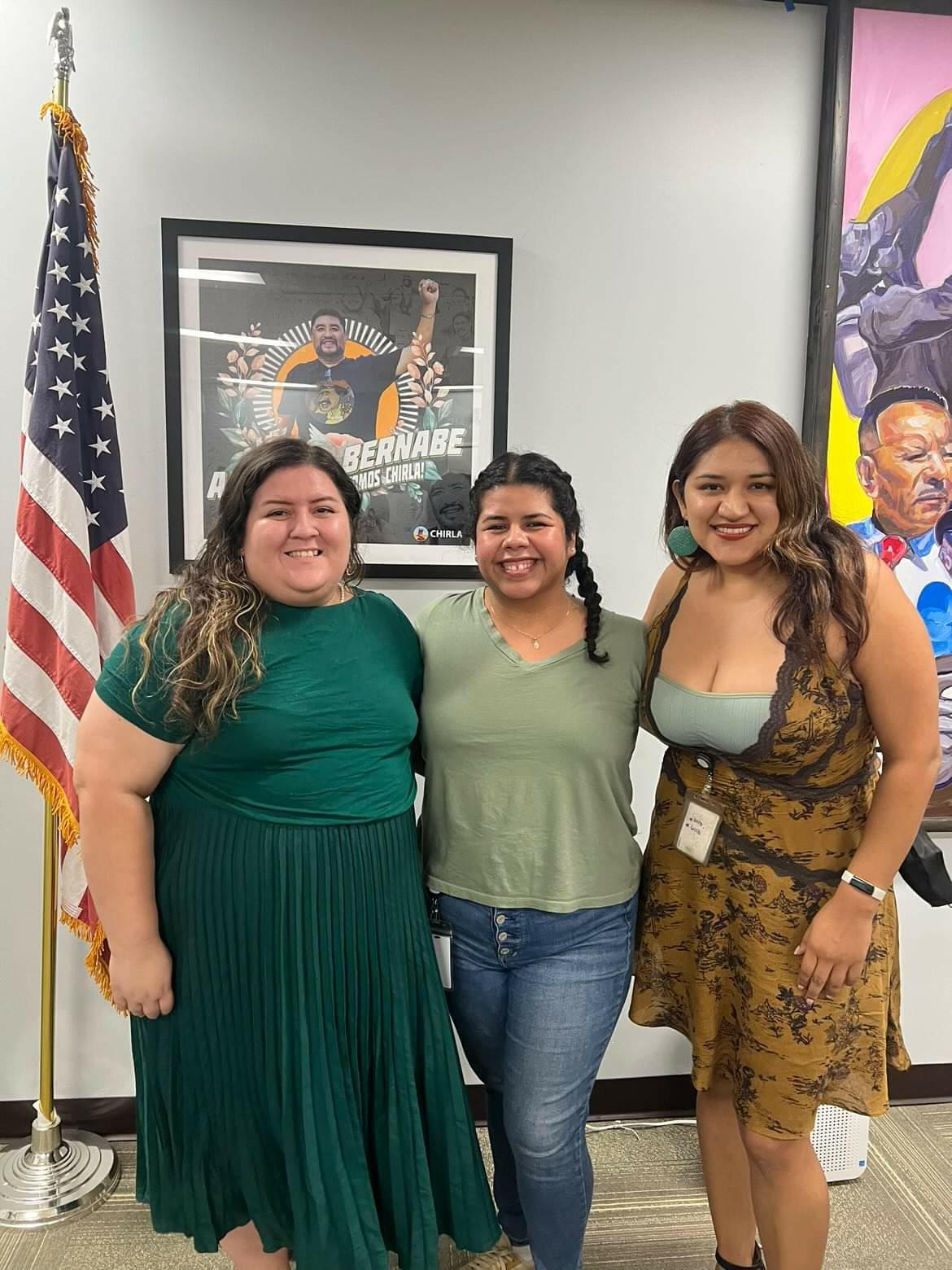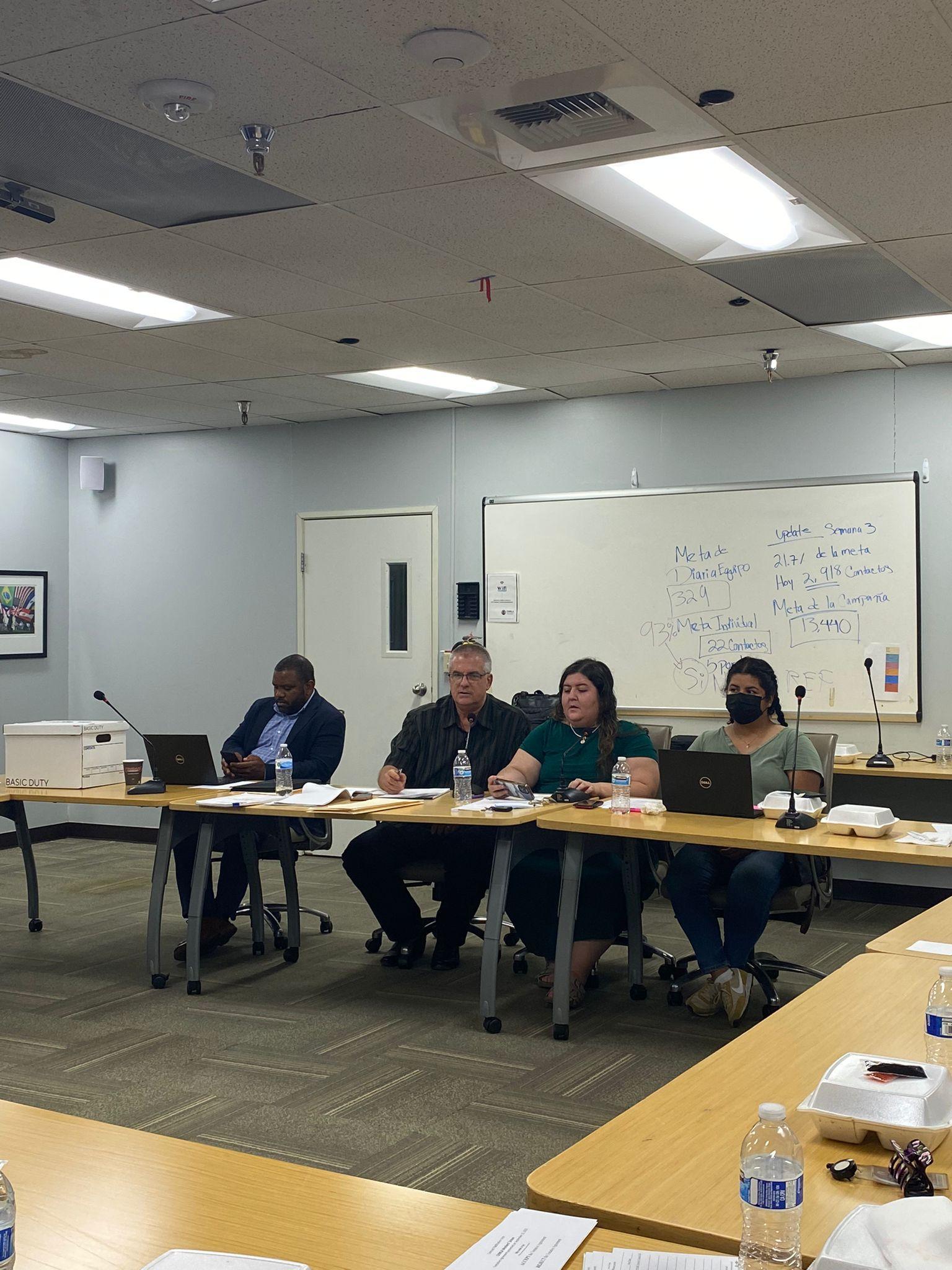Almost two years after forming a union with AFSCME District Council 36, members of CHIRLA Workers Union have ratified their first union contract.
The Coalition for Humane Immigrant Rights (CHIRLA) advocates for some of our most vulnerable community members. However, employees at CHIRLA felt that they were not being advocated for in their workplace, so they formed a union. Now these employees, who work to advance the human and civil rights of immigrants and refugees, have a union contract that addresses prolonged issues.
This 3-year contract sets standards of employment that improve benefits and working conditions for current and future employees. The bargaining team secured wage increases ranging from 12-14 percent. They also negotiated an increased employer contribution for medical premiums from 75 percent to 80 percent.
An important issue that was addressed in the contract is work hours for salaried employees. Many employees were expected to work more than 40 hours a week, which did not allow for much personal or sick time. “The idea that being salary doesn't mean you forfeit your personal or sick time,” said Janeth Herrera Bucio, an Orange County Regional Organizer for CHIRLA and bargaining team member. “The ‘you are a salary employee thus you have to work more than 40 hours a week to get this amount of work done’ was an expectation, not a request. And don't get me wrong, many of the employees here love their work. We are passionate and even directly affected with the advocacy work we do here, but there needed to be a clear understanding that we won't neglect our mental and physical wellness for the deliverables being asked.” The bargaining team also secured improvements to expense reimbursements policies, reimbursements for attorney bar exam dues, discipline & discharge policies, and grievance procedures.
As a first-time bargaining team member, Janeth was intimidated by this negotiations process. “There was a lot at risk doing this,” she said. “I will admit, I didn't want the commitment that came with that job so instead of being the first option to represent the organizing department, I decided to be support for my friend Rosa.” But after some of her colleagues left CHIRLA for other employment opportunities, Janeth realized that she was going to have to step up to support and assist her colleagues during this negotiations process. At first, she was terrified, but after a few meetings she realized her leadership skills would be helpful. “It's something we have as organizers, we highlight the voices that are unheard in our community, instead this time it was going to be mine and my colleagues who have worked so tirelessly in this organization for so many years,” she said.
The beginning of the negotiations process was somewhat arduous, but the death of CHIRLA Organizing Director Tony Bernabe really pushed the bargaining team to focus on what was important, making CHIRLA a better place to work, so the employees can better serve those in need. Now, with the security of a union contract, members of CHIRLA Workers Union feel empowered. “To me, this contract means that we are protected even when our organization has good intentions. There isn't an US vs. THEM, it's a collaborative effort that includes everyone’s voice. And the way this all started was a big, long-distance race, passing the baton to the next CHIRLA staff member that can help keep pushing the other to the end goal,” said Herrera Bucio.



